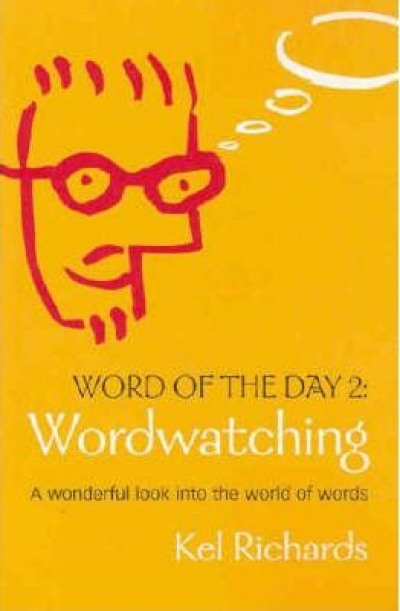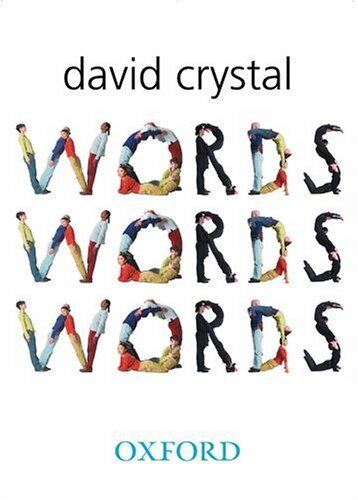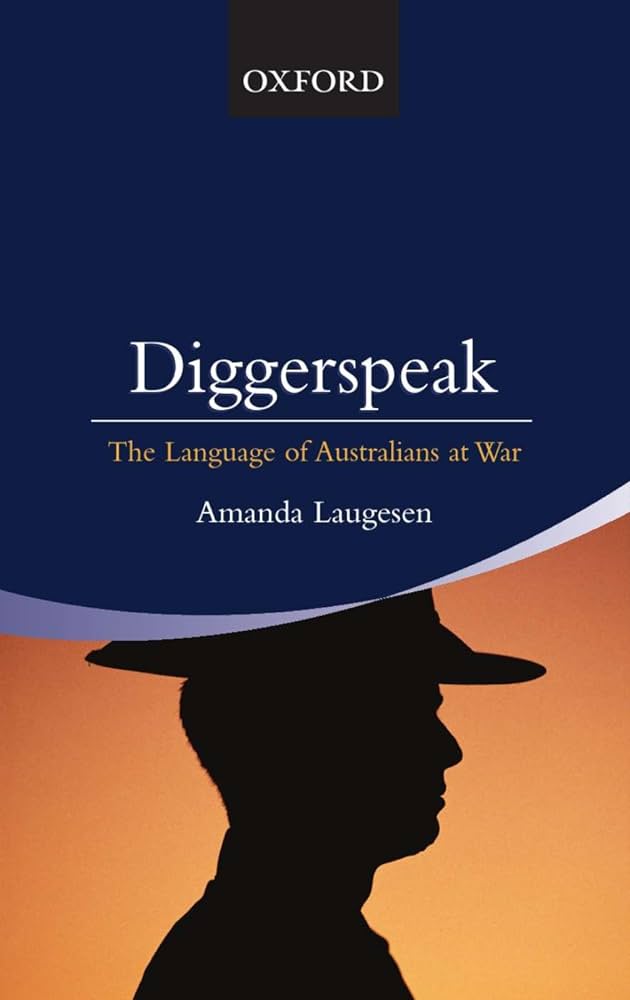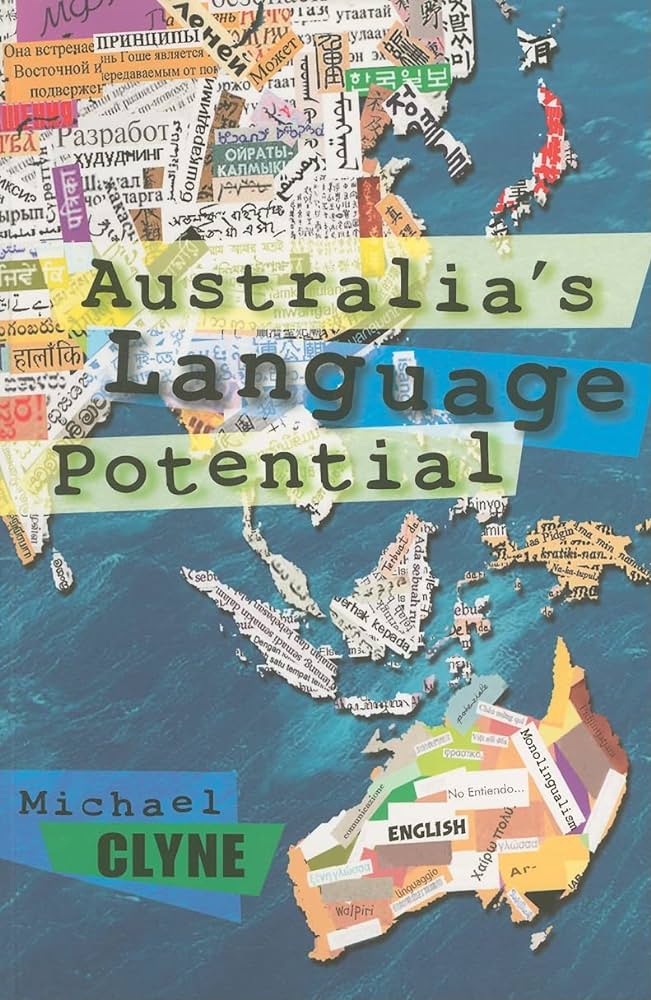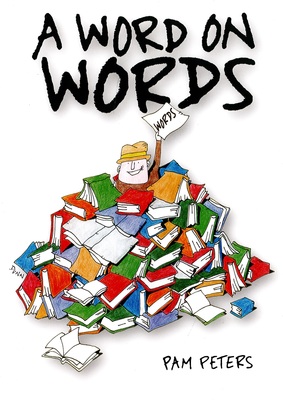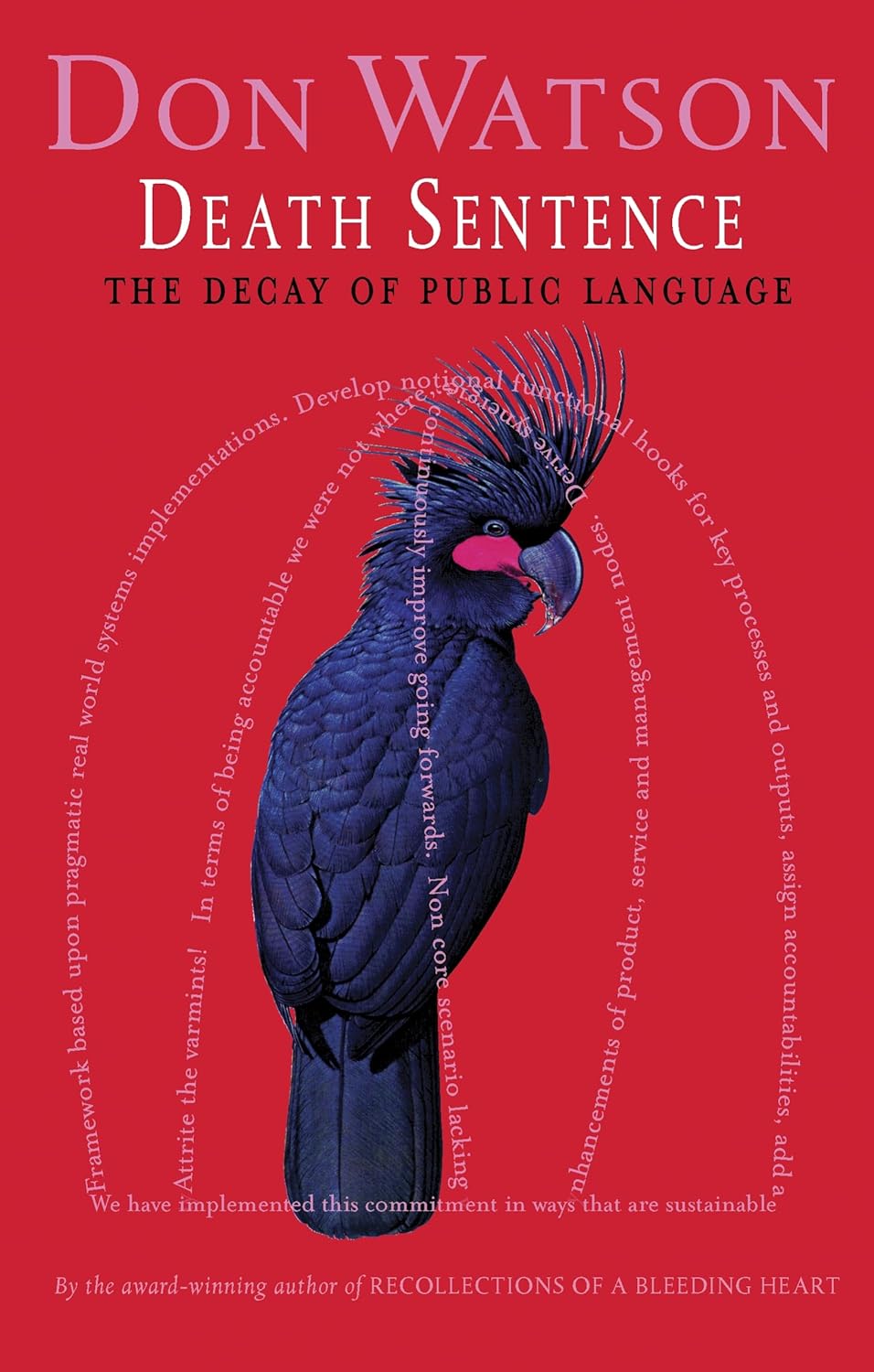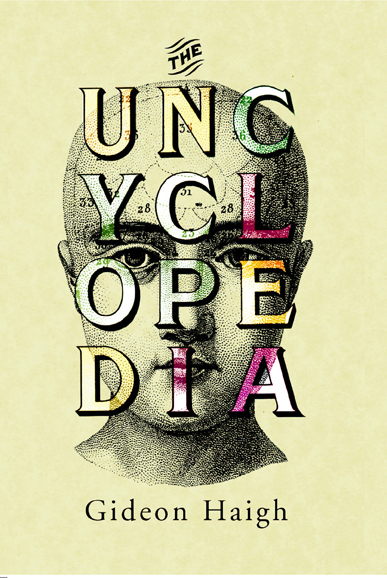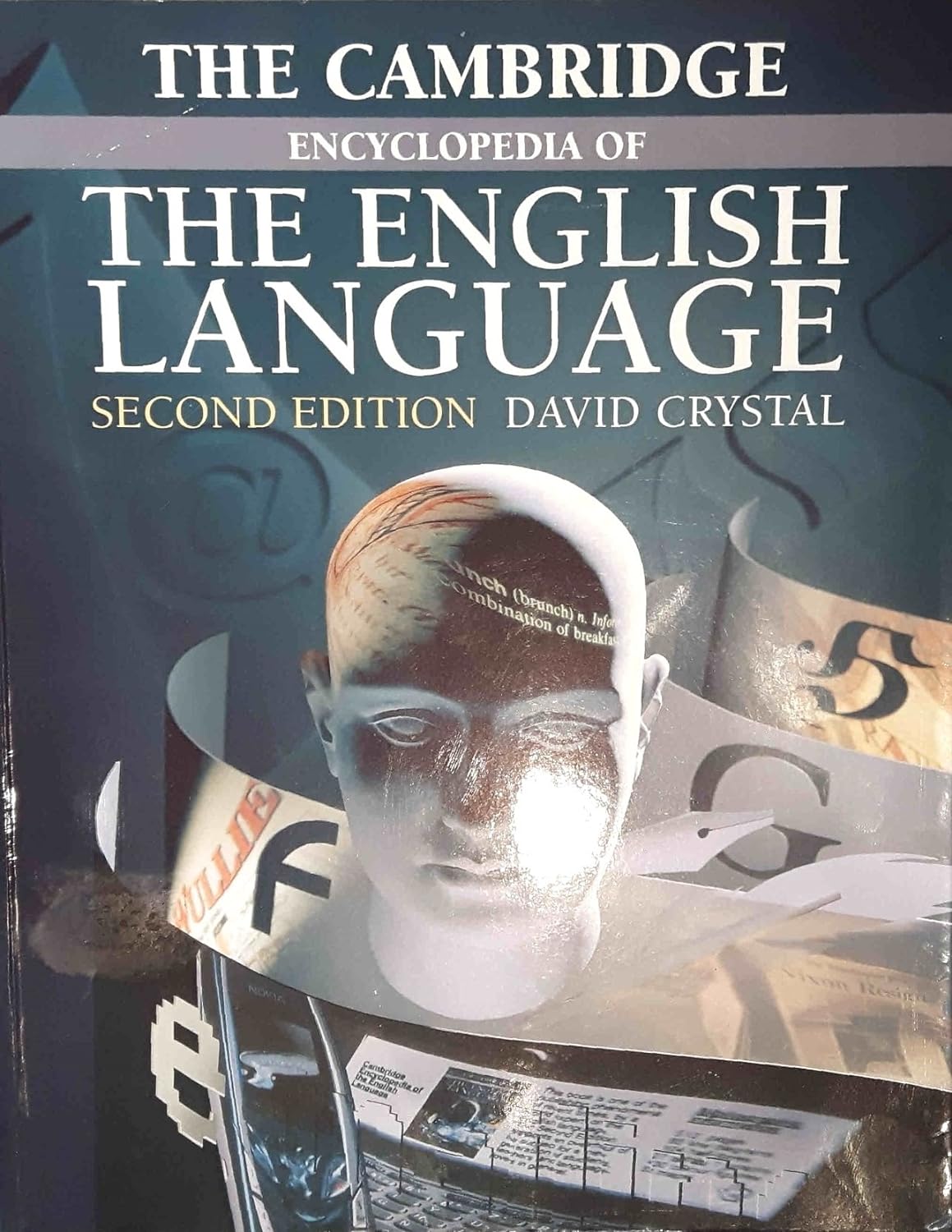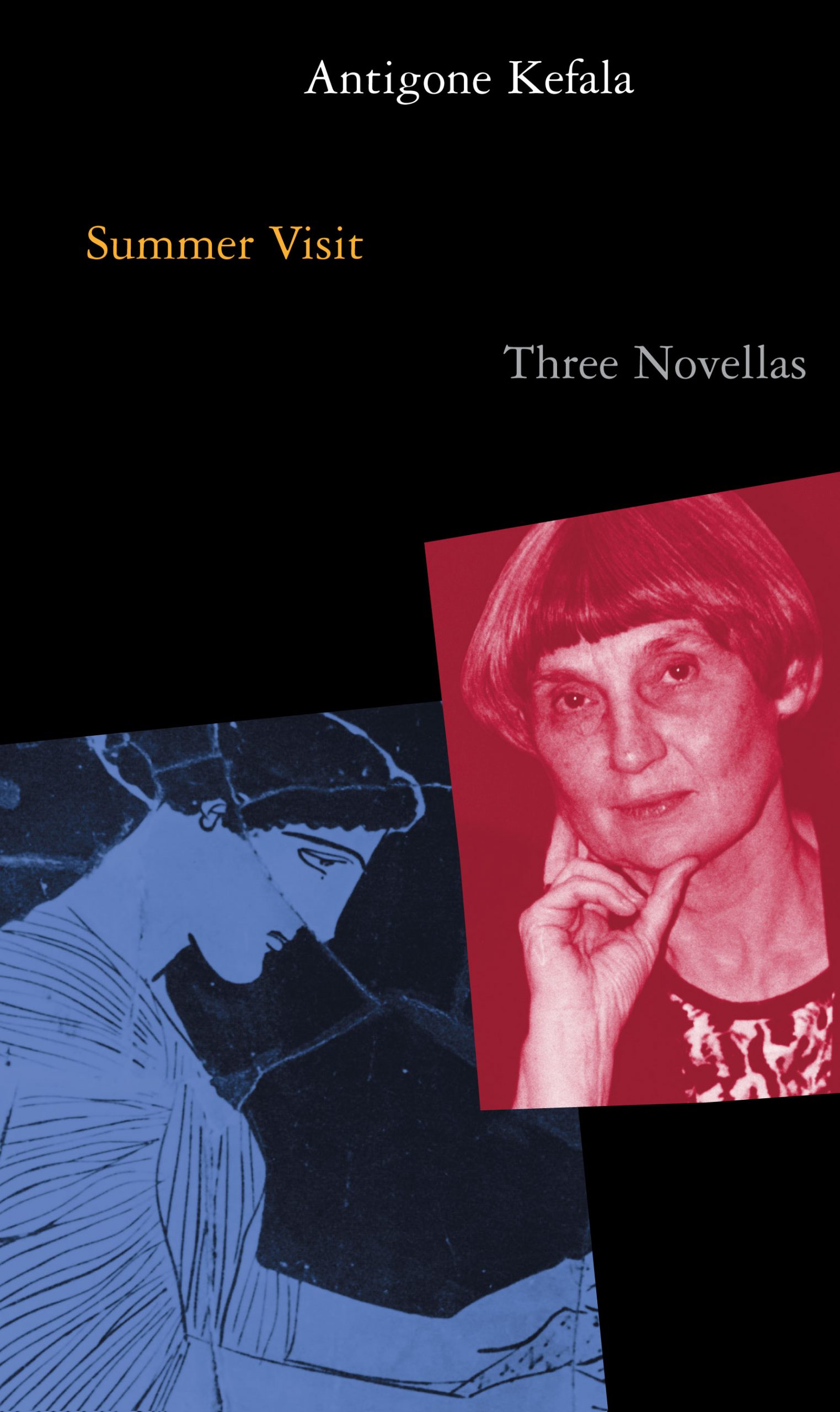Language
At the heart of Anna Wierzbicka’s book is the argument that what people now call World English is not culturally neutral; that it has embedded in it the Anglo values of its origin. Wierzbicka points to many seemingly ordinary English words, words that we would never suspect of being culturally distinctive, that have no equivalents in other languages. Anglo speakers will be surprised to discover that the values these seemingly commonplace words carry are not universals. Good and bad are universals, but right and wrong are not; the concept of fairness is Anglo, and most other languages do not have words that correspond to fair, fairness and unfair. Even at the level of verbal phrases such as I think, I guess and I believe, and in English’s proliferation of adverbs such as probably, possibly, apparently and conceivably, English differs from all other languages.
... (read more)The popularity of his ABC radio program WordWatch gives Kel Richards the licence to publish a second volume of definitions of words and phrases and ‘terse verse’. Word of the Day 2: Wordwatching reads like an exact transcript of Richards’s radio program, complete with off-the-cuff comments.
... (read more)David Crystal has written numerous books on language – ‘over 100’ proclaims the cover blurb. In the chapter titled ‘Wordbirths’, Crystal muses on how rare it is to know who created a new word. In this regard, at the Australian National Dictionary Centre we have been tracing the term barbecue stopper, which is first recorded in the Sydney Morning Herald, 27 October 2001: ‘That’s one reason he [John Howard] will talk about improving the balance between work and family, a topic he describes as a “barbecue stopper” because it engenders so much conversation whenever people get together.’ Did the prime minister invent the term, or was it the creation of his speechwriter?
... (read more)Diggerspeak: The language of Australians at war by Amanda Laugesen
While I was reading this book, news came that Peter Casserly, the last surviving digger who fought on the Western Front in World War I, had died, aged 107. Like Marcel Caux, who died in 2004, aged 105, Casserly always repudiated the Australian glorification of Gallipoli, refusing to participate in Anzac Day marches, join the RSL or even to talk about his wartime experiences. Yet after eighty-seven years of silence on the subject, Casserly had not forgotten the language that diggers used in 1917. The Sydney Morning Herald report of his death quoted from an interview he gave. ‘Another time Fritz derailed a train with English soldiers on board,’ he recollected, adding that, ‘Jerry was always trying to blow up the train with all its ammo.’ The soldiers’ terms to refer to their enemy, the Germans (or ‘the Hun’, as it pleased supporters of the conflict to say then), were Fritz, the pet-form of the common German given name Friedrich, and Jerry, an English pet-name that echoed the word German. Likewise, the Turks were called Abdul and Johnny Turk.
... (read more)Australia's Language Potential by Michael Clyne
If anyone is qualified to speak authoritatively on the nature and role of community languages in Australia, it is Michael Clyne, who has spent much of his academic career researching these languages. His latest book is firmly rooted in research, but it differs from some of his earlier work in that it is clearly directed at the widest possible audience. It is a wake-up call, exploring the relationships between monoculturalism and multiculturalism and monolingualism and multilingualism in present-day Australian society; and showing how the present situation can be explained in part by Australia’s history, and in part by contemporary local and global pressures.
... (read more)A Word On Words by Pam Peters & Away With Words by Ruth Wajnryb
Books on language have been immensely popular in recent years. Simon Winchester’s The Surgeon of Crowthorne (1999) was a study of the relationship between James Murray, the editor of the Oxford English Dictionary, and the insane citation collector Dr Minor. Winchester followed this with The Meaning of Everything (2003), a history of the Oxford English Dictionary project. In Australia, the reception of Don Watson’s Death Sentence: The Decay of Public Language (2003) and of Watson’s Dictionary of Weasel Words (2004) demonstrated the general reading public’s interest in language matters.
... (read more)Death Sentence: The decay of public language by Don Watson
In 1755 Samuel Johnson published his Dictionary of the English Language. In the preface, he laments the chaotic state of the language: ‘When I took the first survey of my undertaking, I found our speech copious without order, and energetic without rules; wherever I turned my view, there was perplexity to be disentangled and confusion to be regulated.’ He despaired at the scope and futility of his task:
... (read more)The Uncyclopedia by Gideon Haigh & Names From Here and Far by William T. S. Noble
In Through the Looking Glass, Humpty Dumpty, among his various pronouncements to Alice, pontificates on the meanings of names. After describing the name Alice’ as ‘a stupid name enough’, Humpty Dumpty asks her what the name Alice means. Alice is doubtful: ‘Must a name mean something?’ And Humpty Dumpty retorts: ‘Of course it must ... My name means the shape I am – and a good handsome shape it is, too.’ The question of the meaning of Alice’s name is left unanswered in Lewis Carroll’s text, but it is answered in William Noble’s Names from Here and Far: The New Holland Dictionary of Names. Alice, we are told, is an English form of the name Adelaide, which in turn is a compound from the Germanic words athel, meaning ‘noble’, and Hilda, meaning ‘heroine’, or heid, meaning ‘kind’. Thus Alice means something like ‘nobly born’.
... (read more)The Cambridge Encyclopedia Of The English Language (Second Edition) by David Crystal
The first edition of David Crystal’s The Cambridge Encyclopedia of the English Language appeared in 1995, and was widely acclaimed. It covered an extraordinary amount of material under the broad topics of ‘The History of English’, ‘English Vocabulary’, ‘English Grammar’, ‘Spoken and Written English’, ‘Using English’ and ‘Learning about English’. It used modern design techniques and was richly illustrated with all kinds of visual material. It was a book that allowed extended reading of essays on particular topics, or dipping and pursuing cross-references. This second edition appears eight years later. Has English changed sufficiently in those eight years to justify a new edition? Is there enough new material in this new edition to persuade someone who bought the first edition in 1995 to buy the 2003 one?
... (read more)Summer Visit by Antigone Kefala & The Island/L’île/To Nisi by Antigone Kefala
Readers who share Helen Nickas’s view that Antigone Kefala’s fiction forms ‘a continuous narrative which depicts and explores the various stages of an exilic journey’ may be pleased to find more instalments in her fourth book of fiction, Summer Visit. The first of the three novellas is an account of an unsatisfying marriage, told with a controlled detachment that makes its title, ‘Intimacy’, seem ironic. In contrast, the third, ‘Conversations with Mother’, contains a series of elegiac apostrophes of the deceased; the connections with Braila and other congruities with a figure familiar from previous writings again encourage an assumption of autobiography.
... (read more)


